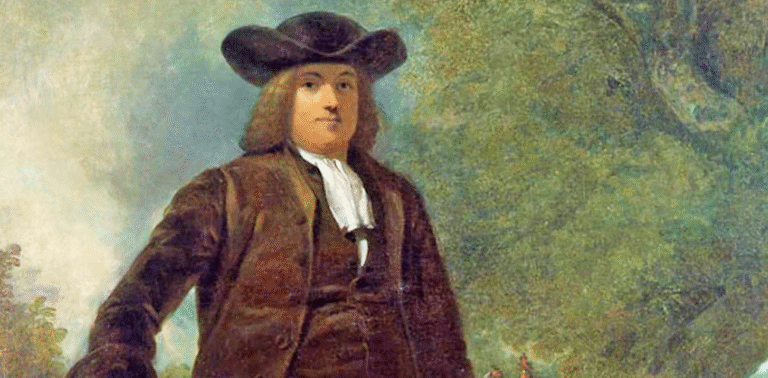Introduction
Imagine living under a government that taxed you unfairly, silenced your voice, and treated you as less than equal. Would you fight back—or stay silent?
For Samuel Adams, silence was never an option. Known as the “Father of the American Revolution,” Adams was more than a fiery speaker—he was a strategist, agitator, and political visionary whose ideas lit the spark of independence.
If you’ve ever wondered, “Who was Samuel Adams, and why is he so important in American history?”—this is your complete guide.

Samuel Adams: Who Was He?
Samuel Adams (1722–1803) was an American statesman, political philosopher, and a founding father of the United States. A master of persuasion and organization, Adams played a central role in rallying colonists against British tyranny.
Early Life and Education
- Born in Boston, Massachusetts, 1722, into a family of Puritan descent.
- Educated at Harvard College, where he studied political theory and graduated with a master’s degree in 1743.
- Early on, Adams was drawn to ideas about self-governance, liberty, and resistance to oppression.
Although he struggled in business, his true talent emerged in political organizing and revolutionary writing.
Samuel Adams and the Road to Revolution
Adams became a powerful voice against British policies that angered colonists.
Key Turning Points:
- Stamp Act (1765): Adams helped organize protests against Britain’s tax on paper goods.
- Townshend Acts (1767): He rallied boycotts and spread resistance through fiery articles.
- Committees of Correspondence (1772): Adams built networks for colonies to share information and unify against Britain.
Adams understood something crucial: revolutions aren’t won by individuals, but by movements. His genius lay in mobilizing ordinary people to demand change.

The Boston Tea Party and Samuel Adams’ Role
When Britain imposed the Tea Act of 1773, colonists faced another test of obedience. Samuel Adams became one of the leading voices urging resistance.
On December 16, 1773, members of the Sons of Liberty—a group Adams helped organize—disguised themselves as Native Americans and dumped tea into Boston Harbor.
This bold act, now known as the Boston Tea Party, electrified the colonies and enraged the British Crown. It was a turning point on the road to independence.
Samuel Adams in the Continental Congress
By 1774, Adams was a delegate to the First Continental Congress in Philadelphia. There, he pushed for coordinated colonial resistance.
In the Second Continental Congress (1775), Adams supported the creation of the Continental Army and strongly advocated for declaring independence from Britain.
He also signed the Declaration of Independence (1776), cementing his place among America’s Founding Fathers.
What Did Samuel Adams Believe?
Adams’ political philosophy was shaped by a deep belief in:
- Natural Rights: Life, liberty, and property belong to every individual.
- Self-Government: Power should rest with the people, not distant rulers.
- Civic Virtue: Citizens must actively participate in protecting their freedom.
- Resistance to Tyranny: Silence in the face of oppression equals surrender.
These principles influenced not only the Revolution but also America’s future democracy.
Samuel Adams vs. John Adams: Were They the Same?
Many confuse Samuel Adams with his cousin John Adams (later the second U.S. president).
- Samuel Adams: Revolutionary organizer, fiery writer, and grassroots leader.
- John Adams: Lawyer, diplomat, and political theorist with a more moderate tone.
Together, they formed a powerful family legacy in the fight for liberty.
Legacy of Samuel Adams
Samuel Adams’ impact went far beyond speeches and protests.
- Nicknamed the “Father of the Revolution.”
- Helped establish committees of correspondence, which later inspired America’s first political party system.
- Served as Governor of Massachusetts (1794–1797).
- Remembered as a champion of freedom, equality, and self-rule.
While he was never as wealthy or famous as other Founders, his determination and vision made him one of the Revolution’s most important architects.
Frequently Asked Questions About Samuel Adams
Q1: Who was Samuel Adams in simple terms?
He was a Founding Father, revolutionary leader, and key organizer of the American independence movement.
Q2: What is Samuel Adams most famous for?
Organizing the Boston Tea Party and helping spark the American Revolution.
Q3: How did Samuel Adams contribute to American democracy?
He promoted ideas of self-government, civic duty, and resistance to tyranny, which shaped the U.S. Constitution.
Q4: Is Samuel Adams related to John Adams?
Yes—he was John Adams’ cousin.
Q5: Why is Samuel Adams called the “Father of the American Revolution”?
Because of his central role in organizing protests, building colonial unity, and pushing for independence.
Lessons from Samuel Adams for Today
- Your voice matters: Even ordinary citizens can spark extraordinary change.
- Freedom must be defended: Complacency is the enemy of liberty.
- Unity wins battles: Adams proved that networks and movements drive revolutions.
Imagine applying Adams’ mindset in modern life—whether in politics, business, or community work. Courage and conviction still move mountains.
Conclusion
Samuel Adams wasn’t just a fiery speaker—he was a revolutionary mastermind who lit the torch of liberty when others hesitated. His unwavering commitment to freedom helped make American independence possible and continues to inspire generations.






[…] tragic death of Charlie Kirk, co-founder of Turning Point USA, has shocked the nation and reignited debates about political […]